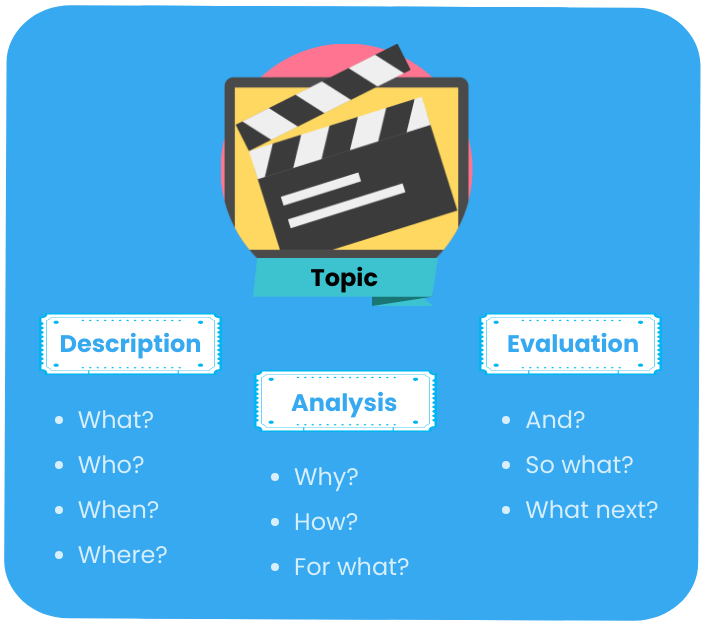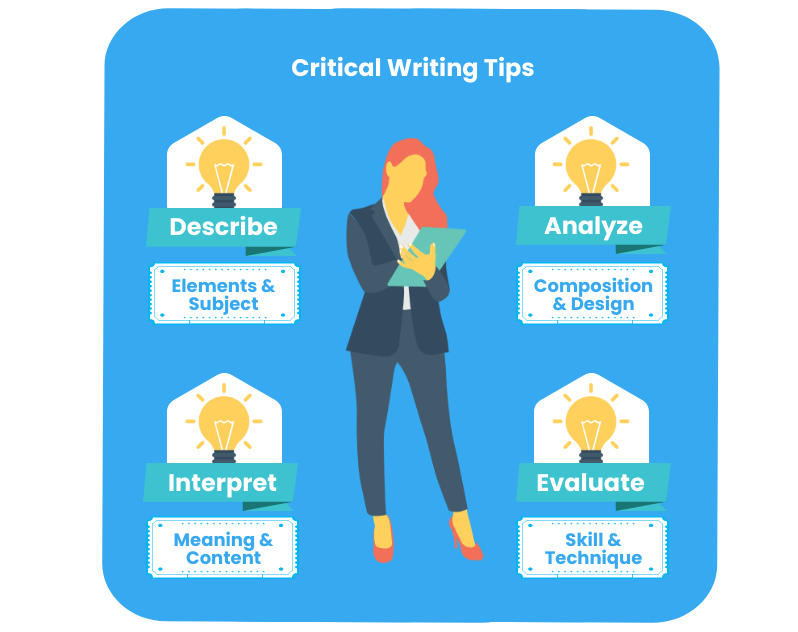Critical writing is a fundamental part of an academic curriculum, as it allows you to analyze, evaluate, and synthesize information. Here, we will dive into the roots of this type of writing, providing critical writing examples and offering insights into how to write critically in various contexts. You’ll also learn how to articulate well-structured arguments and support them with evidence.
Whether you’re crafting a critical response, exploring types of critical writing, or looking for a practical example of critical writing, this guide covers it all. With expert tips from the Custom-writing team and illustrative samples, you’ll gain the tools necessary to enhance your analytical skills and master critical writing techniques.
📜 History of Critical Writing
Let’s start with the fundamental question: what does critical mean? Generally, it refers to involving judgment or criticism. However, it might also mean a turning point. In the context of the article, we’ll discuss it in its former meaning.
Critical analysis in the form that we know it today started with the idea of critical thinking. So, what is it?
Critical thinking is the evaluation not only of the sources of information but ideas and arguments around them, as well. As a reader, you cannot believe everything that is written. You need to evaluate the data, as it is the basis of academic debate. The effectiveness of critical thinking depends on skepticism and objectivity:
- Skepticism. Doubt and question everything you see. You do not accept the information upon seeing it. You thoroughly question it beforehand.
- Objectivity. Provide a neutral perspective on your argument. Try to think of every single thing that might influence your attitude.
Critical thinking skills led to the creation of critical writing. It’s an analysis in a written form that requires evaluating the evidence and coherently expressing your thoughts. If you know how to present your ideas, composing one won’t be that challenging.

Critical writing appeared during the Renaissance when the arts started to criticize the Church. Two historical figures affected its development in particular:
- Jean-Baptiste Molière. The master of comedic drama. He was one of few people to continue creating dramatic works even though the Church labeled them as anti-Christian.
After Molière wrote his comedy Tartuffe (aka. the Hypocrite), which deeply criticized the Church, the priests targeted Molière and his work. Even the king couldn’t protect him once this comedy hit the stage.
But this was just the beginning: - Immanuel Kant. The german philosopher brought critique into the realm of theory that we came close to using our modern review method.
In his aesthetic work called Critique of Judgment, he examined the viability and logic behind “judgments of taste.” Based on his aesthetic theory, many pieces of writing critiques came into being.
Nonetheless, the critical writing process carried on to make a name for itself in the 21st century. This time turned aesthetics into commerce and shaped comprehensive critical analyses into what we know them as today.
🧩 Critical Writing Features
Now that you’ve learned the essential tips, you have to consider the parts of any critical writing piece. Whether you’re writing a movie critique or art critique, the same general guidelines apply to all of them. No matter what the requirements are!
While writing a critique paper, you have to strive for excellence. Each work of this sort has to obtain these features:
- Precise and effective arguments that logically lead to your conclusion.
- An unbiased view for why the point should be supported or handled with accuracy.
- Recognition of the limitations regarding the evidence.
- Refusal to agree with the arguments of other writers without critically evaluating the argumentation they offer.
The main sections of good critical essays are:
- Summary: This should be brief and to the point. Only author’s/creator’s main ideas and arguments should be included.
- Analysis/interpretation: Discuss the author’s/creator’s primary goal and determine whether it was reached successfully. Use the evidence you have gathered to argue whether or not the author/creator achieved was adequately convincing (remember there should be no personal bias in this discussion).
- Evaluation/response: At this point, your readers are ready to read your objective reaction to the work. It should be professional, yet you should include your critical responses to be entertaining to read.
Do not hesitate to use strong language! You can say that the work you analyzed was weak and poorly-structured if that is the case. Yet, keep in mind that you have to have evidence to back up your claim.
To get a better understanding, you may check our The Importance of Being Earnest critique sample.
💡 10 Critical Essay Writing Tips
Now we get down to the real work. Critical papers are a regular assignment in English classes. Some teachers prefer to provide an essay topic and sometimes even specify the thesis statement. Others leave the choice up to you.
To get how to write a critical analysis, you should consider our tips:
- Examine the subject at least twice. Read the book or watch the movie (and so on) that you’ve chosen, preferably a couple of times. If you don’t have time or desire to do it twice, study it once and take detailed notes.
- Mark the places you will talk about. Bookmarks or sticky flags can be convenient. If it’s a movie or performance, you’ll probably have to rely on your memory. Make sure to take notes as soon as possible.
- Provide context before diving into details. Just as in other academic writing pieces, show a general picture before providing detailed information. This way, your reader will be immersed in your critical essay from the start.
- Always elaborate on both pros and cons. Analyze issues with all their advantages and disadvantages. Your discussion has to be balanced to be persuasive and fair.
- Be clear and concise. Reduce your information to its most crucial part. Write directly to the point, and make sure that your reader understands you completely.
- Provide reasonable arguments. Your assertions and judgments are worth nothing if they are not backed up with facts and logic. Illustrate your points with evidence from the piece that you’re criticizing.
- Comment on nuances and subtext. Pinpointing the weaknesses in your argument will help convince the reader. Instead of leaving them for the readers to criticize, acknowledge them.
- Ask for other opinions. A critique can be somewhat confusing when you don’t know how to link it to your thesis statement. If you see that your writing is taking you nowhere, consider consulting with someone. A third-person opinion can navigate your analysis or help you with changing your perspective.
- Be sure to use an impartial tone. Writing a critique paper relies on your respectful approach. Even if you disliked the work you have chosen to analyze, be polite. Your reader will want to get a sophisticated point of view.
- Pay attention to your word choice. Use the appropriate language to highlight that what is being said is a hypothesis or a belief. Implement “hedges” to soften your sentence when necessary.

As one of the crucial critical essay writing tips, we should mention that you can evaluate the chosen piece in several ways. Pick the one you feel more comfortable with from the following:
- Descriptive critical essays examine texts or other works. Their primary focus is usually on specific features. It is common to compare and contrast a given piece to a classic example of the genre to which it belongs.
- Evaluative critical writing provides an estimate of the value of the work. Was it as good as you expected based on the recommendations? Do you feel your time would have been better spent on something else?
- Interpretive essays provide your readers with answers that relate to the meaning of the work in question. To do this, you must select a method of determining its purpose. Then you read/watch/observe the work according to this method and put forth an argument.
There are also different types of critiques. The University of North Carolina-Chapel Hill, in the article “Writing critiques,” also discusses them and appropriate critique language.
🚦 Critical Writing: Dos and Don’ts
Essentially, your paper has to do justice to the author’s or creator’s work. You will thoroughly examine the themes and organization of a book, article, movie, artwork, or whatever you are assigned to critique. In your review, you will summarize, analyze, interpret, and evaluate the work.
There are some things you should and shouldn’t do in your critical essay:
Critical Writing Essay Topics
- Cultural theory critique of Andrews and Boyle’s transcultural concepts.
- Critical analysis of the film Battle in Seattle.
- Analyze the travel memoires of Matsuo Basho, The Narrow Road to the Interior.
- Frankenstein by Mary Shelley: critical writing.
- Discuss the key concept of the book Rich Dad Poor Dad by Robert Kiyosaki.
- Literature critique of strategic management research.
- Examine the philosophical ideas presented in Nausea by Jean-Paul Sartre.
- Analyze the literary techniques used in Hamlet by W. Shakespeare.
- Qualitative critique of the article The TrueBlue Study by Morgan et al.
- Critical evaluation of F. S. Fitzgerald’s The Great Gatsby.
- Of Mice and Men by John Steinbeck: critical analysis.
- The role of communication issues in Joy Luck Club.
- Erin Brockovich: film critique.
- Scrutinize the social issues shown in the documentary Solitary Nation.
- Discuss the ideas presented by Tim Berners-Lee in his book Weaving the Web.
- Critique of the speech We Should all be Feminists by Chimamanda Ngozi Adichie.
- Topicality of the ideas presented in The 7 Habits of Highly Effective People by Stephen R. Covey.
- Critique of Florence Nightingale’s environmental model.
- Die Hard: movie critique.
- The role of symbols in Araby by James Joyce.
- Reading critique of He Died With His Eyes Open by Derek Raymond.
- Comparative analysis of On Seeing England for the First Time by J. Kincaid and The Sasquatch at Home: Traditional Protocols and Storytelling by E. Robinson.
- Sonny’s Blues by James Baldwin: critical writing.
- Reconsidering the life’s values in The Plague by Albert Camus.
- Analyze the film The Lord of the Rings: the Fellowship of the Ring.
- Critique of the research article Using Evidence-Based Practice to Prevent Ventilator-Associated Pneumonia.
- Present your interpretation of the film The Red Balloon by Albert Lamorisse.
- Critical analysis of the Edward Zwick’s film Blood Diamond.
- Discuss the underlying message in the novel Heart of Darkness by Joseph Conrad.
- A Midsummer Night’s Dream: critique.
- Literary analysis of The Worst Hard Time by Timothy Egan.
- Critique of the study When the Five Rights Go Wrong by Jackie H. Jones and Linda Treiber.
- A. Walker’s Everyday Use: a short story critique.
- A critical discussion of federal rule of evidence.
- Lone Survivor by Peter Berg: critical analysis of the movie.
- Compare and analyze the films Double Happiness and Do the Right Thing.
- Discuss the effects of modernity on the eponymous profession in the poem The Dignity of Ushers by Al Maginnes.
- Analyze the central theme of the book The Absolutely True Diary of a Part-Time Indian by Sherman Alexie.
- Examine the author’s interpretation of love in Their Eyes Were Watching God.
- Describe the literary techniques used by Linda Hogan in Dwellings.
- Critical analysis of the film Not Easily Broken.
- Critique of negotiation theory.
- Red Tails by George Lucas: movie critique.
- Discuss the role the setting plays in Cat in the Rain and A Rose for Emily.
- Compare and analyze the use of metaphors in Updike’s A&P and Pastan’s Marks.
- The Radical Marriage of a Runaway Nun and a Renegade Monk by Michelle DeRusha: critical writing.
- Philosophical discourse in Robert Frost’s poem Birches.
- Analyze the film The Monsters Are Due on Maple Street.
Thanks for reading. Now your ultimate goal is to submit to your instructor a critique that will knock their socks off, and you will succeed! Share this page if it was helpful, and leave a comment below.





![How to Write an Argumentative Essay: 101 Guide [+ Examples]](https://custom-writing.org/blog/wp-content/uploads/2021/01/young-writer-taking-notes-284x153.jpg)
![How to Title an Essay: Examples & Step-by-Step Guide [2026]](https://custom-writing.org/blog/wp-content/uploads/2021/01/close-up-woman-making-greeting-card-new-year-christmas-2021-friends-family-scrap-booking-diy-writing-letter-with-best-wishes-design-her-homemade-card-holidays-celebration-284x153.jpg)

![How to Write a Good Introduction: Examples & Tips [2026 Upd.]](https://custom-writing.org/blog/wp-content/uploads/2021/01/closeup-shot-woman-working-studying-from-home-with-red-coffee-cup-nearby-284x153.jpg)

![How to Write about a Topic You Lack Interest in [2026]](https://custom-writing.org/blog/wp-content/uploads/2021/01/Frustrated-exhausted-young-woman-blogger-284x153.jpg)
